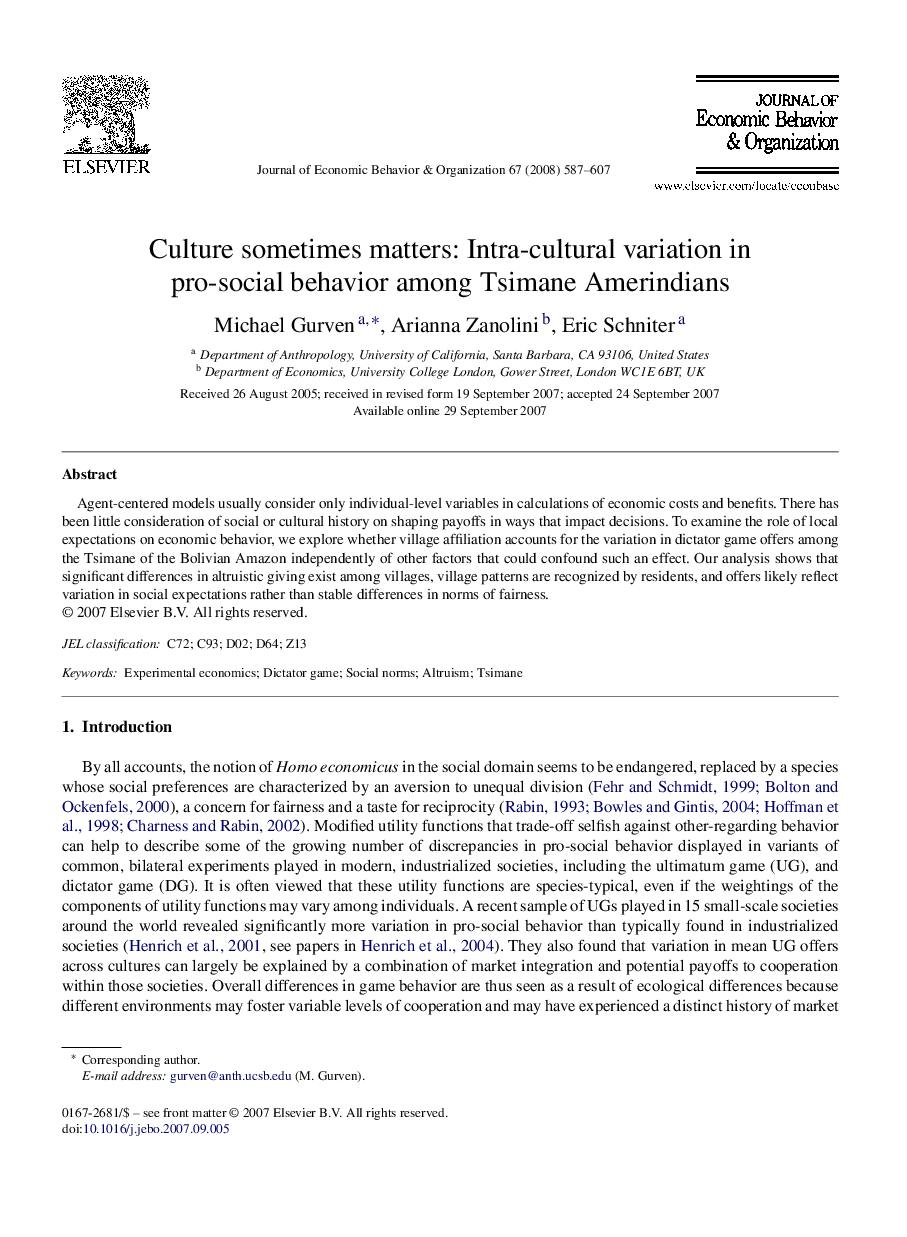| Article ID | Journal | Published Year | Pages | File Type |
|---|---|---|---|---|
| 884628 | Journal of Economic Behavior & Organization | 2008 | 21 Pages |
Abstract
Agent-centered models usually consider only individual-level variables in calculations of economic costs and benefits. There has been little consideration of social or cultural history on shaping payoffs in ways that impact decisions. To examine the role of local expectations on economic behavior, we explore whether village affiliation accounts for the variation in dictator game offers among the Tsimane of the Bolivian Amazon independently of other factors that could confound such an effect. Our analysis shows that significant differences in altruistic giving exist among villages, village patterns are recognized by residents, and offers likely reflect variation in social expectations rather than stable differences in norms of fairness.
Related Topics
Social Sciences and Humanities
Economics, Econometrics and Finance
Economics and Econometrics
Authors
Michael Gurven, Arianna Zanolini, Eric Schniter,
